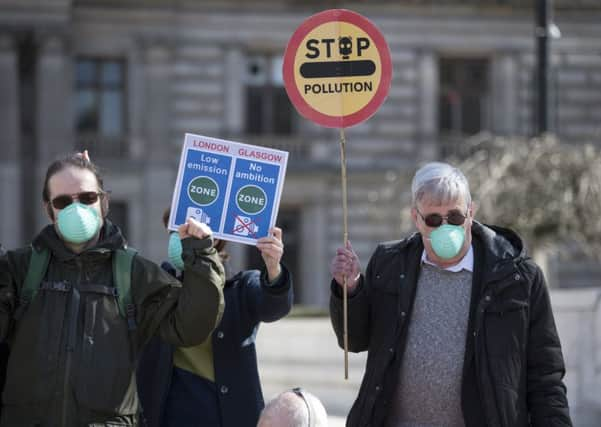Leader comment: Clearing the air for a healthier future


However, identifying what’s wrong with our current way of life never seems quite so simple, so cut and dried. Will future generations regard with horror things that we currently take for granted or assume are simply a normal part of life?
But we could perhaps be forgiven for taking a while to wake up to a problem that is, for the most part, invisible. Air pollution – for many people something that is only ever briefly glimpsed from the exhaust pipe of a badly maintained car – is known to cause and exacerbate a range of serious health problems, resulting in tens of thousands of premature deaths in the UK.
Advertisement
Hide AdAdvertisement
Hide AdIt has soared with the rise in the number of people with access to a fossil-fuel powered vehicle and the surge in demand for energy, particularly over the last 50 years or so.
Finally, however, we are beginning to realise that something must be done about this stealthy, silent killer.
Glasgow was the first city in Scotland to set up a low-emission zone, but the scheme has faced criticism for not being ambitious enough. Now Edinburgh has launched its own plans and hopes to steal a march on Glasgow to claim the title of Scotland’s greenest city. Further competition will hopefully drive the rate of progress.
Banning vehicles with the highest emissions from city centres will certainly help air quality and people with asthma and other lung conditions – and their loved ones – will breathe easier as a result.
Such moves need to be done in a sensible, planned way that avoids creating other, unintended, problems, but it is right do our best to remove this entirely man-made threat. Ultimately low-emission zones will be overtaken as electric engines and low-carbon power generation replace fossil fuels as the driving forces of our economy.
Future generations may look back on the early 21st century and view car exhaust pipes in much the same way as we see the belching smokestacks of Victorian Britain. But, hopefully, they will accept this plea in mitigation and not judge us too harshly.